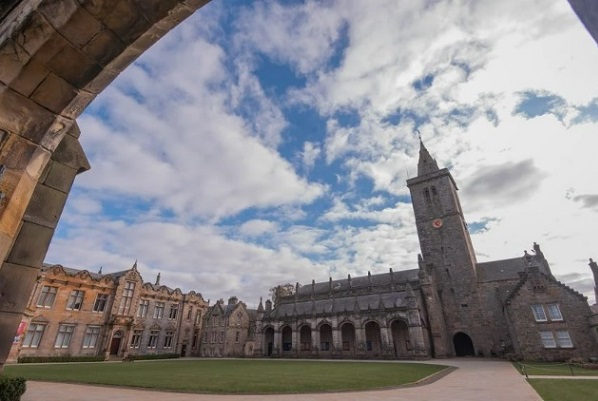The University of St Andrews is pleased to offer two PhD scholarships to support exceptional students undertaking doctoral research in the following project: Shared Island Stories between Scotland and the Caribbean: Past, Present, Future. The University of St Andrews will also guarantee international fees for one Caribbean student, should one be selected. The deadline for applications from the Caribbean is extended to Friday, JULY 1, 2022.
[This information was updated on 23 June 2022. Also see previous post Shared-island-stories-between-scotland-and-the-caribbean-scholarships/.]
Project Description: The proposed PhD projects are part of a substantial new team research project located in the School of Art History and Museum and Heritage Studies at the University of St Andrews called ‘Shared Island Stories between Scotland and the Caribbean: Past, Present, Future’ due to commence in September 2022.
‘Shared Island Stories’ focuses on relations between the archipelagos of Scotland and the Caribbean by emphasising decolonial approaches and acknowledging the power differential between different islands vis-à-vis (neo)colonialism and racial capitalism. It asks:
- Which collections from the islands tell unfinished stories of Empire?
- What is the role of heritage communities for sustainable development?
- How can island community museums partner with NGOs, policy and local organisations and businesses for climate action?
- How can health and well-being be understood in relation to community heritage, traditional ecological knowledge, island life, ecologies and ecological legacies?
- What does this new knowledge bring to debates on climate justice, especially as they relate to the role of young people?
The project seeks to recruit two PhD students full time for 3.5 years. One PhD project will focus on the past, telling ‘shared island stories’ through museum and heritage collections including those belonging to the National Trust for Scotland (NTS), and building on growing attempts to confront Scotland’s enrichment through the transatlantic trade in enslaved people. Located between museum and heritage studies, history and memory studies, it is envisaged that this project will engage with discussions related to decolonisation and commemorative practices. A range of research methods including new archival provenance research into island collections and colonialism, and interviews with curators, volunteers and focus groups is foreseen. Critical engagement with the ways in which NTS is working with contemporary artists in response to histories of colonialism and imperialism in the Caribbean is also of interest to this project.
The second PhD will focus on the present and/or future aspects of the research project. A comparative analysis will be made of cultural landscapes and biodiversity in the Caribbean and Scotland that have been subject to rapid ecological change through colonisation or clearances. Considering the role of ‘sense of place’ for island communities past and present, this project will foster an ecological approach to heritage studies through concepts including ecomuseology. In particular, the Hebrides and ‘West Indies’ will be a point of comparison through their landscape microclimates and novel ecosystems located in gullies, rock slopes and botanical gardens. With a focus on the intangible cultural heritage of islands, community engagement and intergenerational transmission of knowledge will be of particular interest to this study. The response of artists to ecological change may also be explored. Through a mixture of desk-based research and primary evidence, this project will require a willingness to spend significant amount of time on the islands for field work.
Prior qualifications: Applicants should have a very good undergraduate qualification and a relevant Masters degree in museum/heritage studies, history, art history, archaeology, anthropology, memory studies, or a related field. They will have some experience of relevant research methods. Applicants without a Masters qualification should include with their application a 1-page statement outlining the specifically relevant skills, experience and knowledge they have gained beyond undergraduate degree level, that could be considered equivalent to Masters study.
Funding details: The studentships will cover Home/EU tuition fees. For those settled in the UK, it also covers a stipend towards living expenses. The value for the stipend in 2022/23 is £16,062 p.a and £4596 p.a. for Fees(home). The successful applicants will also be entitled to up to £3000 in travel expenses. [. . .]
For more information, see https://www.st-andrews.ac.uk/art-history/news/title-156635-en.php
[Photo above from https://www.facebook.com/uniofsta/photos/3761732623953144]

